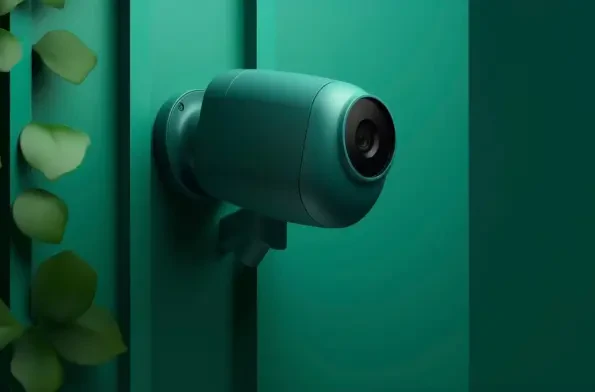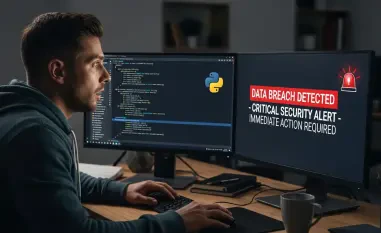Purpose of the Coram Surveillance Review
In an era where security breaches in the travel and hospitality sectors can tarnish reputations overnight, evaluating the right tools to safeguard guests and assets becomes paramount, especially for businesses like hotels, airport lounges, and car rental centers. This review aims to dissect the value of Coram Video Surveillance as a potential investment for such enterprises, with the intent to determine if this system meets the high stakes of protecting vulnerable environments while supporting operational demands.
The specific challenges in these industries often revolve around ensuring guest safety in high-traffic areas and preventing incidents like theft or unauthorized access. Coram positions itself as a solution by offering advanced security features tailored to such needs, promising not only to deter threats but also to streamline responses during critical moments. For business travelers, this could translate to safer, more seamless experiences at check-ins or vehicle pickups.
Beyond immediate safety, the system claims to enhance efficiency for managers overseeing multiple locations. By addressing both security gaps and logistical hurdles, the evaluation seeks to uncover whether Coram truly delivers a comprehensive package for hospitality and travel enterprises facing complex, dynamic risks.
Overview of Coram Video Surveillance Technology
Coram Video Surveillance stands out with a suite of cutting-edge features designed to modernize security operations. At its core, the system integrates AI-powered natural language search, allowing users to retrieve specific footage using simple text queries, alongside facial recognition, weapon detection, and license plate recognition (LPR). These tools aim to proactively identify risks and simplify investigations in busy environments.
A notable aspect is its compatibility with existing IP cameras, eliminating the need for costly hardware overhauls. The unified dashboard ties together video surveillance, access control, and emergency management, providing a single point of oversight. This integration ensures that security teams can monitor and respond to incidents across various functions without switching platforms, enhancing reaction times.
Additionally, Coram offers hybrid cloud storage for data flexibility, a swift 10-minute installation process, and compliance with stringent standards like SOC 2 Type II and HIPAA. These unique selling points cater to businesses prioritizing scalability, privacy, and ease of deployment, positioning the system as a versatile option for diverse operational needs in the travel sector.
Performance Evaluation of Coram in Real-World Scenarios
Testing Coram’s capabilities in travel-related settings reveals its adaptability to demanding environments such as hotel lobbies, airport lounges, and car rental facilities. In hotels, the system’s facial recognition and weapon detection proved effective in flagging potential threats discreetly, maintaining guest comfort while bolstering safety. The ability to monitor high-traffic zones in real time was particularly beneficial for preventing disruptions.
The natural language search feature demonstrated impressive accuracy when retrieving footage, enabling security personnel to locate specific incidents—like a misplaced item in a lounge—within moments. Scalability also shone through, as the platform managed multiple locations seamlessly, a critical asset for chains or franchises. This consistency across sites ensured uniform security standards without extensive manual oversight.
Reliability during internet outages, thanks to hybrid cloud storage, emerged as a key strength, ensuring data access even in connectivity-challenged areas like remote rental outposts. However, minor delays in cloud syncing were noted under suboptimal network conditions, suggesting that performance hinges partly on infrastructure quality. Overall, the system handled real-world demands with commendable precision in most scenarios.
Strengths and Weaknesses of Coram Surveillance
Among Coram’s strongest advantages is its cost-effectiveness, achieved through compatibility with pre-existing camera systems. This reduces upfront expenses, a significant benefit for budget-conscious businesses in hospitality. The quick deployment, often completed in under 10 minutes, further minimizes downtime, allowing operations to resume swiftly after setup.
Tailored features like LPR add substantial value, especially for parking zones at car rental hubs or hotel lots, enabling efficient vehicle tracking and security. The hybrid storage model also ensures data redundancy, protecting against loss during technical failures. Such practical functionalities make the system a compelling choice for multifaceted travel environments requiring robust yet affordable solutions.
On the downside, dependency on consistent internet connectivity for optimal cloud functionality poses a challenge. In areas with unstable networks, some features may underperform, potentially delaying critical responses. Additionally, smaller setups might find limited customization options for advanced tools, as the system appears geared toward larger or multi-site operations, possibly leaving niche needs unaddressed.
Final Assessment and Recommendation
Summarizing the findings, Coram Video Surveillance emerges as a reliable and feature-rich solution for the travel and hospitality industries. Its performance in threat detection, ease of footage retrieval, and scalability across locations align well with the sector’s pressing security demands. The system’s design caters effectively to environments where quick, actionable insights are vital for guest and asset protection.
Particular strengths lie in its integration capabilities and tailored functionalities, such as LPR for parking management, which directly address operational pain points. While internet dependency remains a concern, the hybrid storage mitigates this to a reasonable extent, ensuring continuity in most situations. For businesses prioritizing rapid deployment and comprehensive oversight, Coram presents a strong case.
The recommendation is to adopt Coram, especially for multi-location operations like hotel chains or expansive car rental networks. Its value shines in settings that require scalable, efficient security solutions without extensive infrastructure investments. Enterprises with robust connectivity will likely extract the fullest potential from this technology.
Concluding Insights and Practical Advice
Reflecting on the evaluation, Coram stood out as an all-in-one security solution that adeptly met the nuanced demands of modern travel businesses. Its blend of AI-driven tools and user-friendly design offered a significant edge in safeguarding dynamic, guest-heavy spaces. The impact of such a system extended beyond mere surveillance, fostering trust and operational smoothness in high-stakes settings.
For those considering implementation, hotel chains and car rental operators with sprawling networks were found to benefit most, given the system’s scalability and multi-site management strengths. A key piece of advice is to assess internet stability prior to deployment, as consistent connectivity amplifies cloud-based features. Exploring backup network solutions could preempt performance hiccups in less connected areas.
Another practical step involves mapping specific security needs against Coram’s offerings before purchase. Businesses with unique or smaller-scale requirements might need to weigh if the system’s broader focus fully aligns with their goals. Taking time to pilot the technology in a single location is advised as a prudent way to gauge fit and address any initial challenges before full rollout.













